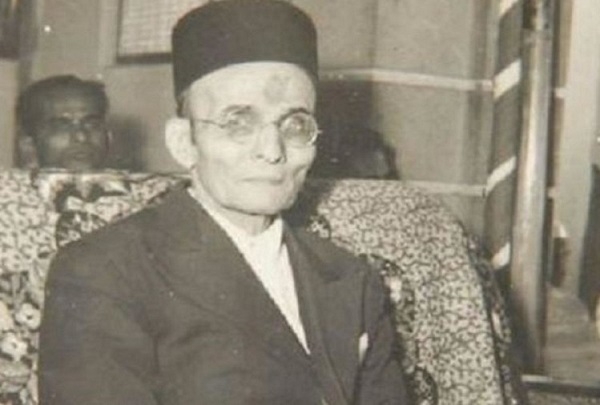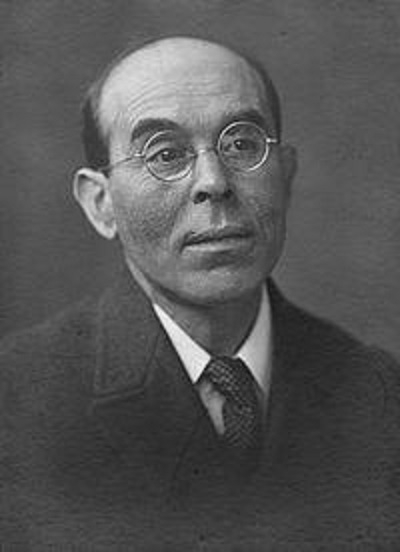Savarkar, Nazi, Hitler and Jews- Part 4
Total Views |
"Indian Moslems are on the whole more inclined to identify themselves and their interests with Moslems outside India than Hindus who lived next door, like the Jews in Germany.’’ 1 This statement of his is merely a comparison of (some) Muslim questions prevalent at that time in India and (some) Jews in Germany. He never advocated genocide or expulsion of Muslims or Jews.
"But if we Hindus in India grow stronger in time these Moslem friends of the league type will have to play the part of German-Jews instead.” Savarkar-opponents always quoted this half sentence because it’s suited them to show Savarkar as Nazi admirer and anti-Jewish, however the fact is different. Savarkar immediately said that- “We Hindus have taught the Shakas and the Huns already to play that part pretty well.’’ 2 What Hindus taught Shakas and the Huns? Genocide or expulsion? No, never. In due course of time, Hindus assimilated them into Hindu culture. So is the assimilation of Muslims advocated by Savarkar.

When Veer Savarkar said ‘’A Nation is formed by a majority living therein. What did the Jews do in Germany? They being in minority were driven out from Germany’’ 3 he was quoting what was happening in Germany with Jews at that time. It doesn’t mean that he was advocating of same treatment be given to Indian Jews. On contrary he said, “Jews will be friendly towards Hindus who have sheltered them when homeless and can be easily assimilated in a common Indian State’’ 4
A nation in general is recognized by majority of its population. On this basis, Savarkar stated “A Nation is formed by a majority living therein” He never promoted majoritarianism to be imposed on minority. Savarkar says, “If the non-Hindu minorities are to be protected then surely the Hindu majority also must be protected against any aggressive minority in India.’’ 5 Further says he, “Moslem minority in India will have the right to be treated as equal citizens, enjoying equal protection and civic rights in proportion to their population. The Hindu majority will not encroach on the legitimate rights of any non-Hindu minority.’’ 6 These are purely democratic thoughts.
‘’In Germany the movement of the Germans is the national movement but that of the Jews is a communal one….. Nationality did not depend so much on a common geographical area as on unity of thought, religion, language and culture. For this reason the Germans and the Jews could not be regarded as a nation.’’ 7 states VD Savarkar. Modern Zionism emerged in 19th century as a reaction to the growing anti-Semitism in Europe. It’s a dream of Zionism of re-establishment Jews in their homeland viz., Palestine which proves indirectly that it’s not mandatory that Nationality should be depend so much on a common geographical area. Even some Indian Jews who were living in India peacefully also migrated to Israel after 1948, and further in some recent years too. Hence Savarkar’s statements indirectly imply that he was in favor of Zionist movement. VD Savarkar himself was cherishing affectionate thoughts: ‘’Indian Jews who have been citizens of India for centuries in the past and who have already developed an intimate linguistic, cultural and civic affinities with the Hindus in India’’ 8

Sir William Rothenstein (Courtesy: Wikipedia)
Savarkar’s Jewish friend Sir William Rothenstein (29 January 1872 to 14 February 1945) was one of Savarkar’s British friend who was sympathizer of India’s freedom struggle like David Garnett and Guy Aldred. Sir William Rothenstein was born into a German-Jewish family and an English painter famous for war portraits, printmaker, lecturer and writer on art. He helped David Garnett for writing letters in support of Savakar and raising funds to resist the extradition of Savarkar.9
When one talks about the nationalism, only thing that comes in people’s mind, especially Europeans’ minds, is Nazism or fascism and they look at Savarkar's Hindu Rashtra from the same perspective. But Savarkar was strongly opposed to Nazism or fascism or Communism or autocratic and authoritarian system of governance. He said “When one nation and caste crushes the authority of another race and brotherhood and deliberately hinders the way of forming a larger group or union of the human race, its nationalism or racism is disgusting to humanity.”10
Also, speaking in the presidential address of the Karnavati Convention of the Hindu Mahasabha of 1937, Savarkar said, “No movement is condemnable simply because it is sectional. So long as it tries to defend the just and fundamental rights of a particular nation or people or community against the unjust and overbearing aggression of other human aggregates and does not infringe on an equal just right and liberties of others, it cannot be condemned or looked down simply because the nation or community is a smaller aggregate in itself. But when a nation or community treads upon the rights of sister nations or communities and aggressively stands in the way of forming larger associations and aggregates of mankind, its nationalism or communalism becomes condemnable from a human point of view.”11 This statement of Savarkar clearly indicates that he endorsed the nationalism based on humanism.
It is rather saddening than surprising that how a person who has Jewish friend, supported Zionism, congratulated formation of Israel and admired Indian Jews’ loyalty towards India could be accused of anti-Jewish or advocacy of holocaust!
References:
1. Samagra Savarkar Vangmay- Volume 6, Editor: S.R Date, 1963-65, Maharashtra Prantik Hindusabha Publication, Page 352
2. ibid, Page 325
3. Casolari, Marzia. Hindutva’s Foreign Tie-up in the 1930s Archival Evidence, Economic and Political Weekly, 22 January 2000
4. SSV- Volume 6, Page 328
5. ibid, Page 298
6. ibid, Page 353
7. Casolari, Marzia
8. Whirl-Wind Propaganda, Page 70-71
9. (Edi.) Robbins, Kenneth X. & Tokayer, Rabbi Marvin. Jews & The Indian National Art Project, Niyogi Books Publication, 2015 & (Edi.) Ryan, Derek & Ross, Stephen. The Handbook to the Bloomsbury Group, Bloomsbury Academic Publication, 2018, Page 98
10. SSV- Volume 6, Page 285
11. ibid, Page 285
(Concluded)
Part 1-
Part 2-
Part 3-

